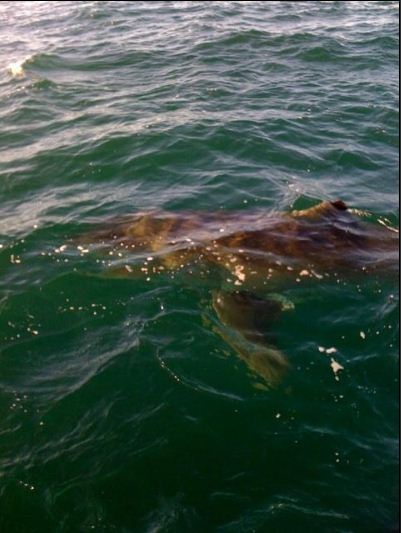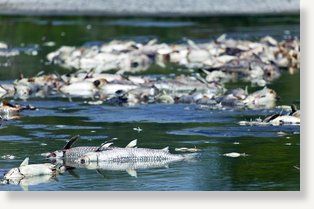Lake Charles, Louisiana - Thousands of dead fish were discovered Wednesday, lining the shore of the I-210 beach.
Most of the fish washed ashore on the southwest corner of the beach.
Officials with the Louisiana Department of Wildlife and Fisheries identified the fish as Shad, which are known to travel in huge schools and are more common in creeks.
Biologists collected samples of the fish to send off for testing. Though no official results are back, biologists said the fish kill was most likely caused by low oxygen levels. Low oxygen levels are usually caused by low tides and high temperatures and usually affect one species.
Fish kills are common along the Gulf Coast, especially during the summer months.
Since officials don't believe the fish pose any threat to humans or animals, the I-210 beach remains open.


